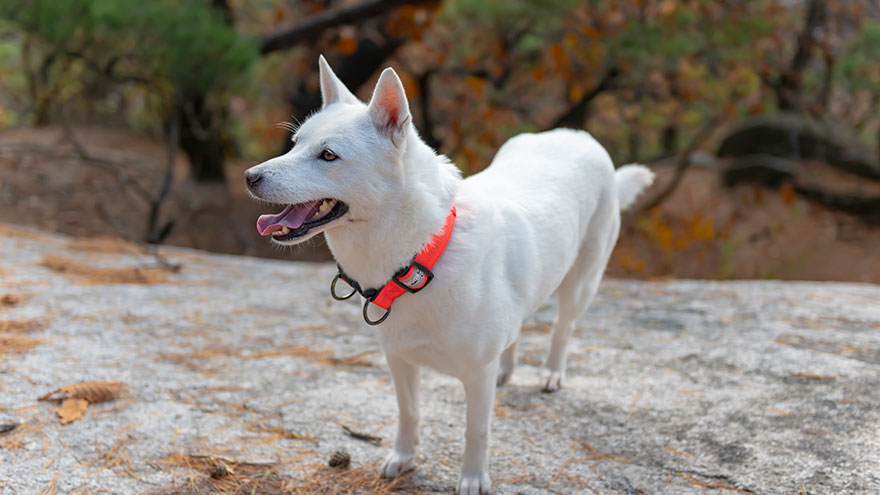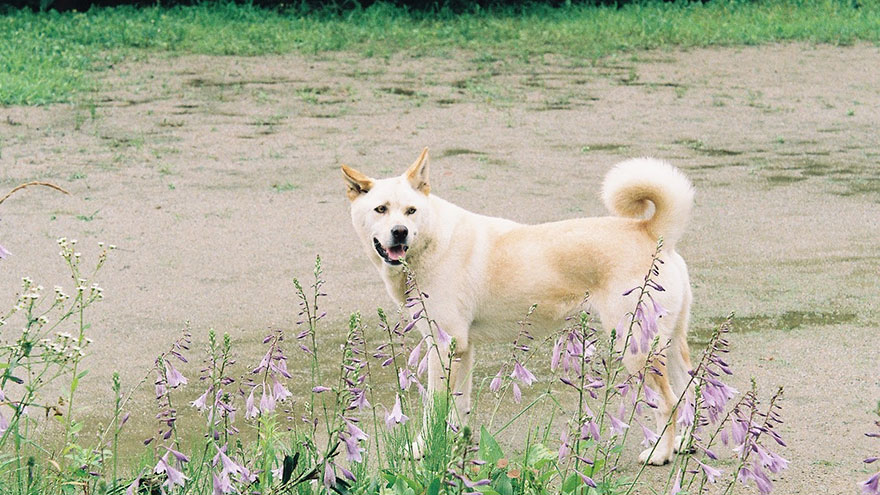How to Care for a Jindo
The Jindo is a breed of dog that originated in Korea and is considered relatively rare in North America–but are certainly around–so if you see a dog resembling a Shiba Inu, but larger–or an Akita, but smaller–chances are it’s a Jindo.
These independent-minded, yet loving and loyal dogs can live to 15–with the right care, that is. Here are some right ways to care for a Jindo.
Tips For Taking Care Of Your Jindo
Take your Jindo for regular checkups and stay current on vaccinations, flea and heartworm preventative. You can also do a monthly home exam of the ears, skin, nose, teeth, eyes and gums.
Spay or neuter your Jindo. Spaying females before the first heat will prevent breast cancer and uterine infections. Neutering males at a young age will prevent testicular cancer, help maintain a healthy prostate and curb aggression.
Have your Jindo’s teeth professionally cleaned every 6 months to a year. Ask your vet or a teeth-cleaning professional for a recommended schedule. You may also want to brush your Jindo’s teeth.

Feed your Jindo a quality dog food with meat as the first ingredient and no by-products, added preservatives or fillers. If feeding a homemade or raw diet, make sure your Jindo has the proper balance of protein, fat, carbs, vitamins and minerals.
Train your Jindo firmly, yet gently, and start as early as possible, as Jindos tend to have a “mind of their own.” They do, however, seem to have a natural instinct for being housebroken.
Provide your Jindo with regular walks and exercise. They can do well in an apartment, as long as they have the proper amount of exercise.
Bathe your Jindo when necessary, but not too frequently; Jindos are very good about grooming themselves to keep clean. Keep up with regular brushing of their double coat, which is normally shed twice a year.

Tips & Warnings
Jindos tend to be very affectionate with family members, but wary of strangers at first.
Early socialization of your Jindo with other pets, children and strangers is a good idea because of their protective nature.
If you work long hours or are away a lot, consider doggie daycare or a pet sitter. Jindos crave human companionship and don’t do well when left alone for too long.
If adopting a Jindo, keep in mind that they are known for having an ability to return to their original home, however far away. There was a story of a Jindo in Korea that found his way back home after traveling 160 miles.
Jindos were originally bred to hunt game, so it’s best to keep them from smaller pets such as cats, rabbits and hamsters, and be cautious with smaller dogs.
The Jindo may become aggressive to protect its family and territory.
Make sure your fence is high enough; this dog can jump!
Hyperthyroidism can be common in the breed.

